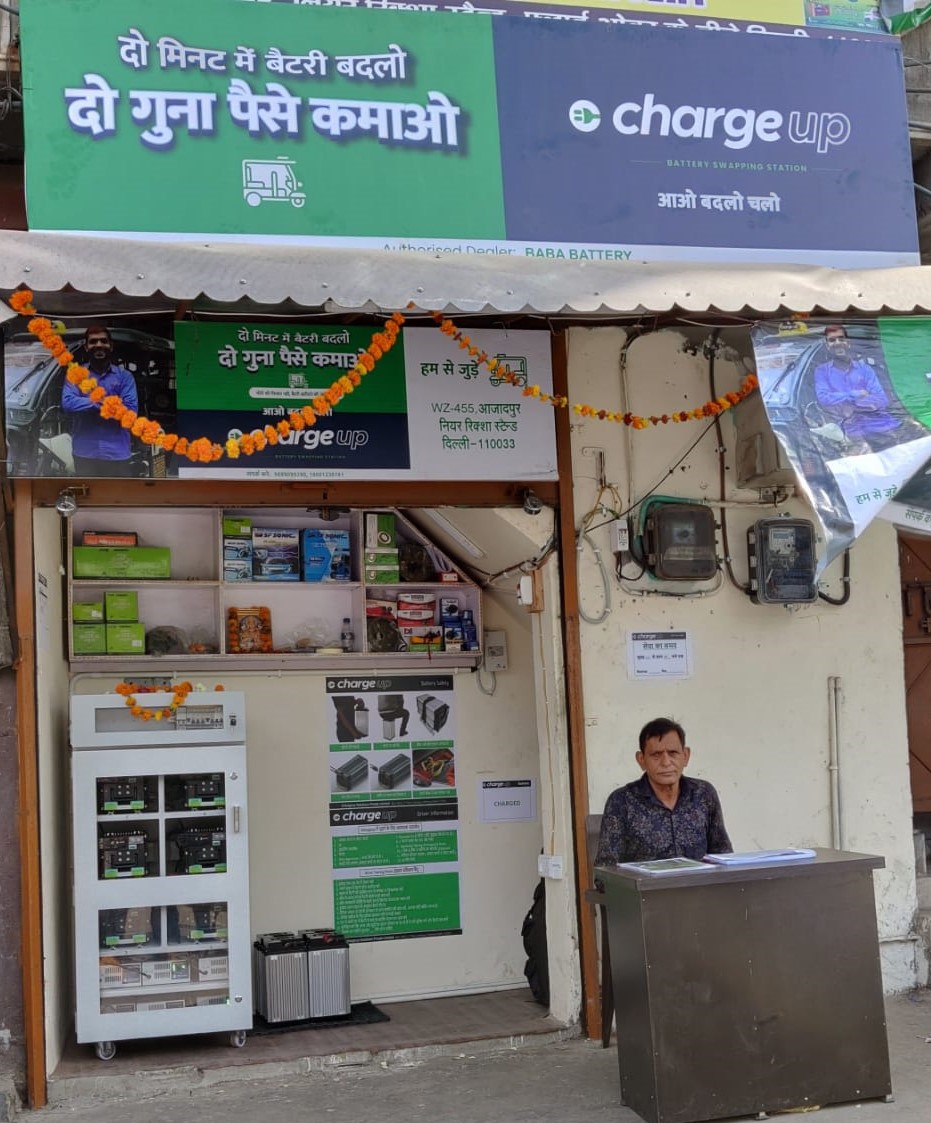Started in 2019, Charge-up, Delhi based startup that provides ‘Battery Swapping Service as an alternative to conventional batteries which helps e-rickshaw drivers cut costs. So far this startup has achieved 2.4 million km through their battery swapping service. With ongoing expansions, they are achieving 500,000 km per month. This translates into 500 tonnes of savings in CO2 emissions per annum.
Talking about the inspiration behind the startup, Varun Goenka, Co-Founder, Charge-up said, “Global warming and environmental degradation are two of the most critical issues at present and sustainable innovations are the solutions for these issues. It was driven by this objective that we founded Charge-Up, Bharat’s largest battery-swapping network in 2019. The core objective of Charge-Up is to provide better earning opportunities for e-rickshaw drivers by helping them with the perennial charging problem that greatly diminishes the revenue-generating possibilities for them. About 80% of the electric vehicles in India today are e-rickshaws. They are the most affordable and cheaper means of clean transportation. There are over 2.4 million such vehicles in the country, with 33% CAGR Y-O-Y, transporting about 140 million people each day. And therefore, we thought that its best to cater them.”
Explaining the battery as a service model, Goenka said, “Charge-up provides a simple solution called Battery-as-a-Service (BAAS). We allow e-rickshaw drivers to use lightweight Li-ion batteries at zero upfront cost. The rickshaw driver only needs to pay daily rental for the battery and can get his vehicle back on the road in just 2 minutes. All they need to do is to subscribe to a daily battery rental plan. This allows them to visit the swapping station as many as 2-3 times a day and they can swap the discharged batteries with fully charged batteries provided by Charge-Up.”

“They can make the payment by cash or UPI and the packages are aligned with the per km cost of customers. We have created a rapidly expanding network of service and battery swapping stations and aim to continually expand the network until there is a service station within a 2-km range for all e-rickshaws plying in Delhi/NCR. Charge-up does not own charging stations but offers BAAS through a distributed network of battery swapping hubs. Currently, we offer services at 12 such stations in Delhi and are opening a new station every week,” he added.
He also informed that with their startup, they have achieved 2.4 million km through our battery swapping service. With ongoing expansions, they are achieving 500,000 km per month. This translates into 500 tonnes of savings in CO2 emissions per annum. He also shares one of the major challenges is standardising robust battery technology and getting them on lease. Talking about the future of electric vehicles in India, Goenka said, “Electric vehicles (EVs) are the clean-tech solution to environmental pollution. With the rise in global warming, the time has come for the mass adoption of EVs. However, despite the understanding and willingness of vehicle owners, the path to owning and using EVs has not been as easy as is the case with conventional vehicles. This is why even with more than 9 years to go, India had to scale down from the ambitious goal of 100% electric mobility by 2030. The country is now aiming to have 70% of the two/three-wheelers and public transportation by 2030. This indicates that the national focus now has to be on having electric vehicles for public transportation.”
“Charge-Up is ready to move to the next level with plans to take the monthly swap count to over 200,000. We aim to increase the number of battery swaps to over 300,000 a month by March 2022 and service 1 million EVs by 2024. Charge-Up aims to benefit the lives of 2.4 million e-rickshaw drivers by providing high quality and quick charging infrastructure all over the country,” Goenka mentioned as he signs off.
Written By: Aaron Dias

